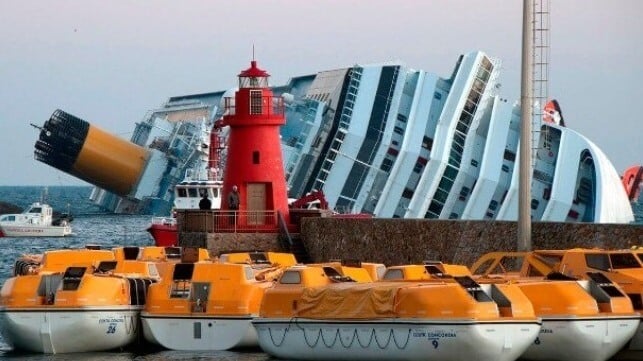Former Costa Concordia Captain Eyes Parole

Capt. Francesco Schettino, the former captain of the ill-fated Costa Concordia, may soon be eligible for partial parole after serving nearly a decade in prison. The tragic incident, which occurred on January 13, 2012, resulted in the deaths of 32 people and marked Italy’s worst maritime disaster since World War II. If granted parole, Schettino has a job lined up at a Vatican institution, raising concerns among victims’ families.
Tragic History of the Costa Concordia
The Costa Concordia disaster unfolded off the coast of Giglio, Tuscany, when the cruise ship struck a rock and capsized, leading to a catastrophic loss of life. The incident not only claimed 32 lives but also resulted in a staggering $2 billion in wreck removal costs, making it the largest maritime recovery operation in history. On that fateful day, Schettino maneuvered the ship closer to shore as a tribute to a retired cruise line commodore, a decision that ultimately led to the grounding and partial sinking of the vessel.
In 2015, Schettino was convicted of manslaughter and sentenced to 16 years in prison. His defense team has consistently argued that the collision itself did not directly cause the fatalities. They attribute the deaths to a failed backup generator and flooded compartments that hindered evacuation efforts. Furthermore, they have denied claims that Schettino abandoned the ship prematurely or navigated close to shore to impress a female dancer present on the bridge. Throughout the trial and subsequent appeals, Schettino maintained that the disaster was a result of various factors, including vessel issues and miscommunication among the crew.
Parole Hearing and Potential Employment
After serving nine years of his sentence, Schettino’s case is set for review by a parole board on April 8. If granted “semi-freedom,” he would be permitted to work during the day at the Fabbrica di San Pietro, an institution affiliated with the Vatican responsible for preserving St. Peter’s Basilica. His role would involve digitizing historical documents, and he would join other inmates from Rome’s prisons who are employed at the Vatican through a prisoner support group called Second Chance.
This potential employment opportunity has sparked a mix of reactions, particularly from the families of the victims. Many oppose Schettino’s release, arguing that he should face harsher consequences for his actions. Giovanni Girolamo, whose son was among the crew members who perished in the disaster, expressed his outrage, stating that Schettino “must not be released, but given 32 life sentences,” reflecting the number of lives lost in the tragedy.
The Costa Concordia disaster remains a painful memory for many, and the prospect of Schettino’s parole has reignited discussions about accountability and justice. Families of the victims continue to grapple with their loss, and the idea of Schettino returning to society, even in a limited capacity, has been met with strong opposition. As the parole board prepares to make its decision, the case serves as a reminder of the lasting impact of the tragedy and the ongoing quest for closure among those affected.
